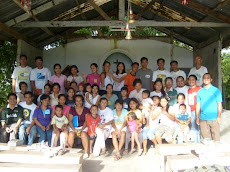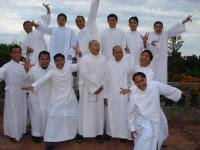Archangel Michael is referred to in the Old Testament and has been part of Christian teachings since the earliest times. However, throughout the centuries specific Roman Catholic traditions and views on Archangel Michael (also called Saint Michael by Catholics) have taken shape, as recently as the 19th and 20th centuries. For instance, a specific Prayer to Saint Michael was promoted by Pope Leo XIII in 1888 and as recently as 1994 was reinforced by Pope John Paul II who encouraged the Catholic faithful to continue to pray it, saying: "I ask everyone not to forget it and to recite it to obtain help in the battle against forces of darkness.”
Archangel Michael has specific roles within Roman Catholic teachings that range from acting as the chief opponent of Satan to the saving of souls at the hour of death. Roman Catholic literature and traditions continue to point to Saint Michael in contexts as varied as the protection of the Catholic Church to the Consecration of Russia by popes Pius XII and John Paul II regarding the messages reported at Our Lady of Fatima. This article reviews these Roman Catholic teachings and traditions.
The Archangels
Archangel Michael with archangels Raphael and Gabriel, as they accompany Tobias, by Francesco Botticini, 1470.
Angels in general, and archangels in particular, have specific roles within Roman Catholic teachings. The Catechism of the Catholic Church (334-335) states that:
"The whole life of the church benefits from the mysterious and powerful help of the angels.... From its beginning until death, human life is surrounded by their watchful care and intercession."
The three angels named in the Bible are Michael, Gabriel and Raphael. Michael means "Who is like God", Gabriel means "Power of God" and Raphael means "God heals".The feast of these three archangels is celebrated on September 29. Within the hierarchy of the angels, at the highest level, St. Michael is a princely Seraph.The word archangel comes from the Greek words arche (prince) and angelos (messenger). The prophet Daniel (12: 1) called him "Michael the great prince who shall rise at the time of the end."
Christian art often portrays archangels together. For instance Archangels Michael and Gabriel are jointly depicted on Our Lady of Perpetual Help, a Byzantine icon of the Blessed Virgin Mary that is has been the subject of widespread Catholic devotions for centuries.
Role and Mission
In Roman Catholicism Saint Michael has four distinct roles. First, he is the supreme enemy of Satan and the fallen angels. He vanquished Satan and ejected him from Paradise and will achieve victory at the hour of the final battle with Satan. Secondly, he is the Christian angel of death: at the hour of death, Saint Michael descends and gives each soul the chance to redeem itself before passing, thus consternating the devil and his minions. Saint Michael's third role is weighing souls in his perfectly balanced scales (hence the saint is often depicted holding scales) on Judgment Day. And finally, Saint Michael is the Guardian of the Church.
In the Catholic tradition, Saint Michael symbolizes the victory of good over evil, and he has been widely represented in Catholic art through the ages. Devotions to Saint Michael have a large Catholic following, and a large number of churches are dedicated to him worldwide.
Views of the Saints and the Popes
Archangel Michael by Jaime Huguet, 1456.
St. Francis of Assisi was specially devoted to Archangel Michael and often said that Saint Michael should be specially honored because his duty is presenting souls to God. St. Francis used to say that: "Each person should offer God some special praise or gift in honor of such a great prince" and he would fast for about forty days from the feast of the Assumption (August 15) to Saint Michael's feast day on September 29.
St. Bernard of Clairvaux recommended the invocation of Saint Michael at the time of temptation and sorrow. He said:
"Whenever any grievous temptation or vehement sorrow oppresses thee, invoke thy guardian, thy leader, cry out to him, and say, Lord, save us, lest we perish!"
In his 1986 address called "Angels Participate in the History of Salvation" Pope John Paul II emphasized the role of the Archangels and stated that:"the angels who participate in the life of the Trinity in the light of glory are also called to play their part in the history of human salvation, in the moments established by divine Providence"
In 2007, Pope Benedict XVI described part of the role of Saint Michael as follows:
"...defends the cause of God's oneness against the presumption of the dragon, the "ancient serpent", as John calls it. The serpent's continuous effort is to make men believe that God must disappear so that they themselves may become important; that God impedes our freedom and, therefore, that we must rid ourselves of him."
In this address Pope Benedict XVI urged all bishops to act as part of the army of Saint Michael against evil.
Monday, September 28, 2009
Subscribe to:
Post Comments (Atom)














No comments:
Post a Comment